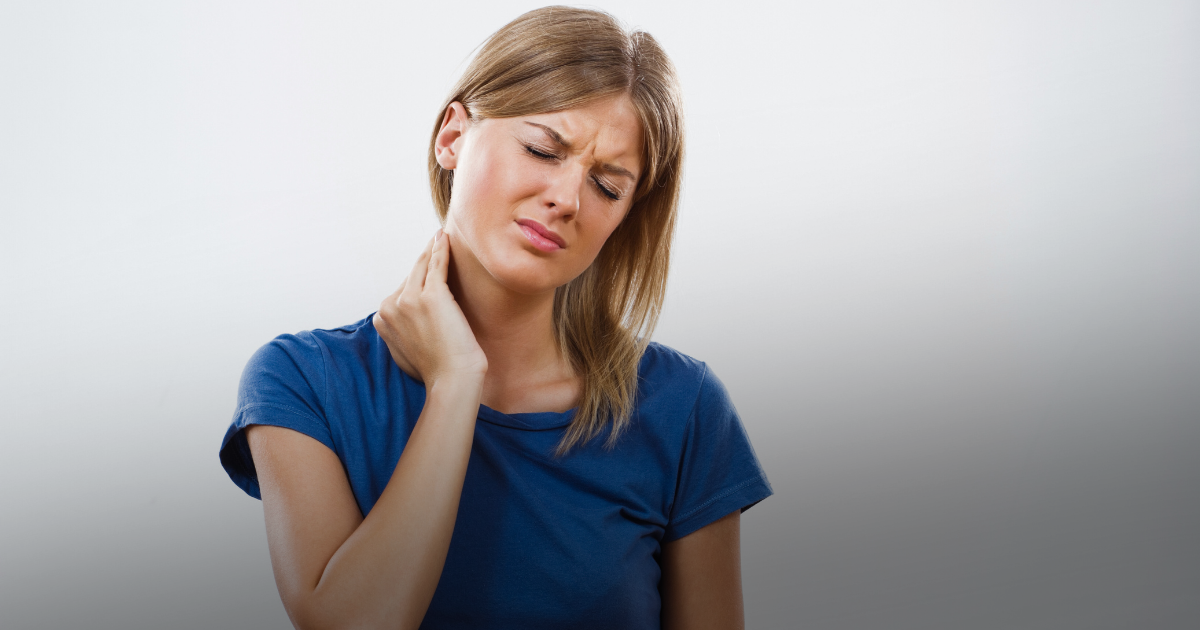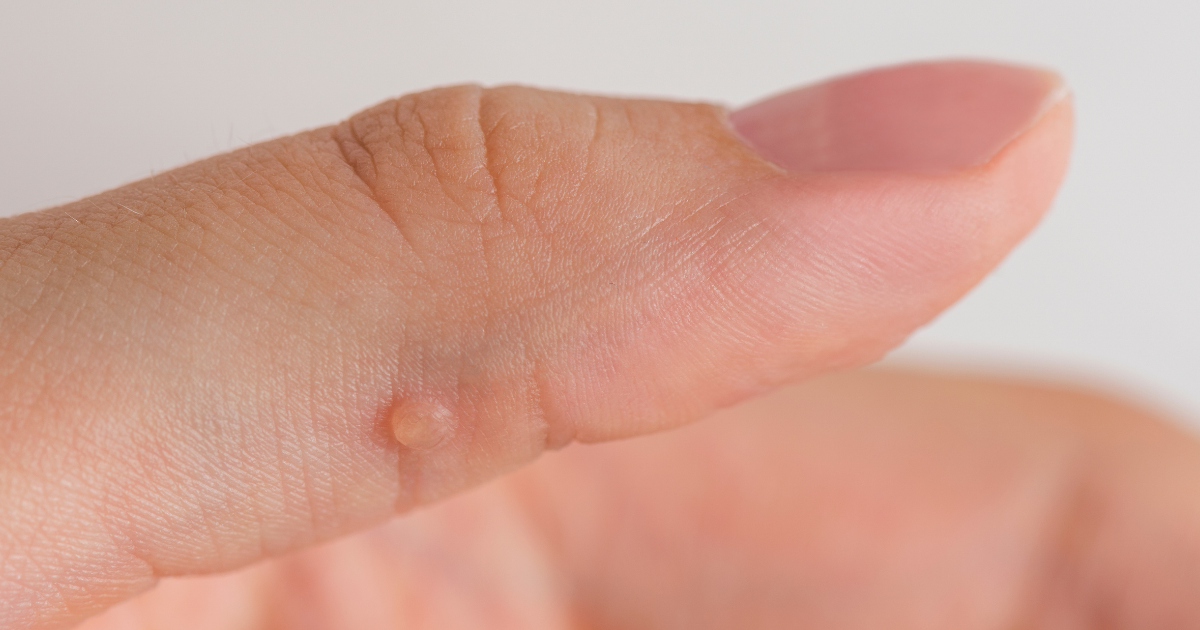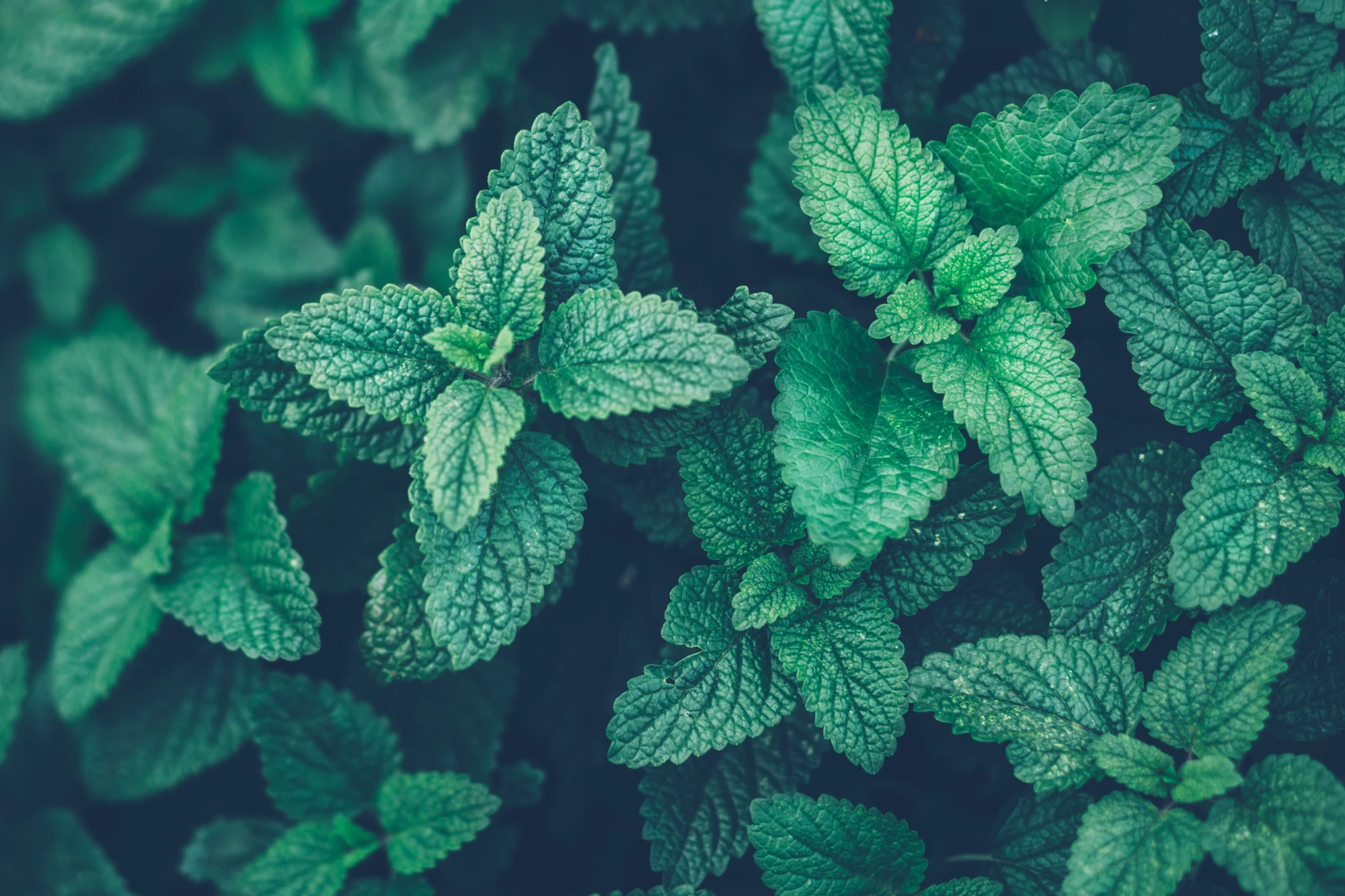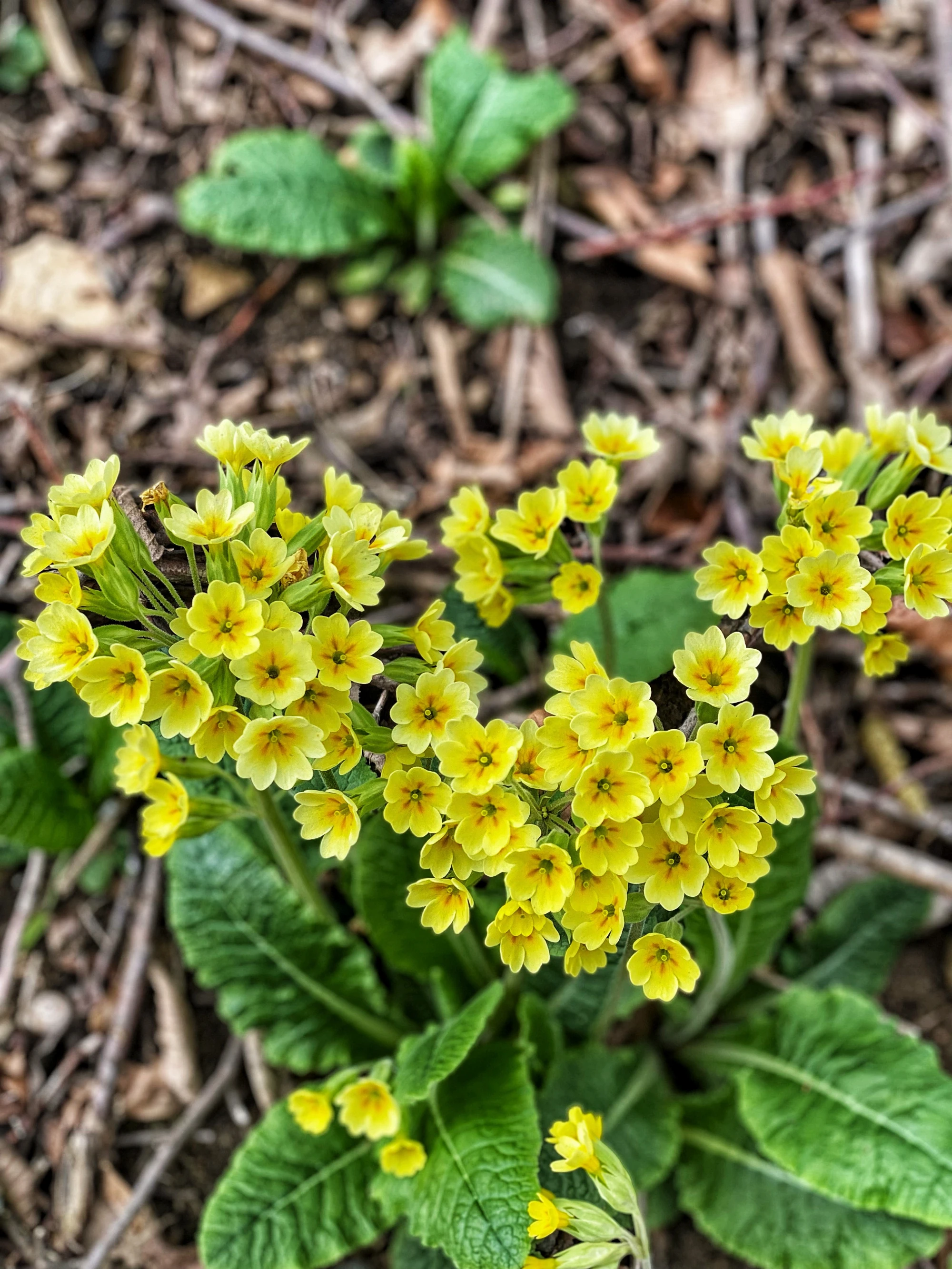Do you suffer from sleep problems? Then you’re not alone. A study published by the Medical University of Vienna revealed that eight per cent of the population of Austria alone suffered from chronic sleeplessness in 2021 – and the trend is upwards. Worldwide the figure stands at 45 per cent, i.e. nearly half the total global population.
But why do some people find it so hard to fall asleep and stay asleep?
Restlessness, stress and worries are the most frequent causes of sleep disorders. You’ve no doubt experienced it yourself. You lie in bed at night thinking about a meeting with a client that didn’t quite go according to plan, or relive a discussion with your partner that didn’t clear the air as you’d hoped. Your head is in a spin, your thoughts revolve around what was said and descend into a spiral that robs you of your sleep.
Besides the better-known causes resulting from lifestyle choices – such as drinking alcohol and caffeinated drinks, lack of exercise, smoking and/or greasy food – sleep disorders can also be caused by shift work and jetlag. Those who often travel across many time zones in particular face the challenge of either falling asleep or staying asleep.
Bothersome external influences that impact your sleeping environment can stop you falling asleep as well. These include too much light or noise, or the wrong mattress.
Last but not least, physical and mental illness such as cancer, chronic pain, gastrointestinal disease and depression can be the reason why you’re not getting a good night’s sleep.
What’s classed as a sleep disorder and what as normal, healthy sleep?
A sleep disorder is defined as taking more than 30 minutes to get to sleep, being unable to sleep all through the night or waking up too early – and that at least four times a week. When these symptoms persist for more than three months, this is characterised as an acute sleep disorder.
There are various types of sleep disorder:
Normal, healthy sleep is when a specific cycle is repeated around five to six times during the night.
- The cycle begins with the sleep onset phase, during which you’re already lying in bed with your eyes closed, in a relaxed state. It’s easy to wake someone who is dozing and on the verge of sleep.
- Next comes the light sleep phase, during which the muscles go limp, heart and breathing rate slow down and become more regular, and consciousness fades.
- During the next phase of deeper sleep, psychological problems are processed and dreams are realistic. If you’re experiencing conflict in your life, it can be difficult to switch off at this stage and achieve this deeper phase of sleep.
- Once the muscles have gone completely limp and heart rate and breathing are slow and regular, the body and mind begin to completely relax and regenerate. This phase of deep sleep is very important and necessary for sufficient regeneration to take place.
- We dream most during REM sleep (REM = rapid eye movement). During this phase our eyes move around rapidly and breathing and heart rate are quick and irregular. Our brain is at its most active during this phase, which contributes to memory consolidation of activities done and knowledge learned during the day. Waking up during this phase means you’re most likely to remember what you were dreaming.
Over the course of our life our sleeping patterns and the amount of sleep we need to be fighting fit the next day change. While newborn babies need between 14 and 18 hours of sleep, adults only need around seven to eight hours. The elderly may only need five to six hours.
The quality of sleep as well as the amount of sleep are really important for our immune system. While we’re asleep our body launches a number of healing processes that are particularly effective at this time. Free radicals are removed, new immune cells are formed and cell damage is repaired.
Symptoms and diagnosis
If you don’t get enough sleep, then you’ll probably not be on top of your game during the day. Lack of concentration and low performance levels can make life more difficult. Sleep-deprived people tire more easily, and are also more irritable and restless. A lack of sleep has various physical impacts, such as raised blood pressure, disturbed breathing and heart rate, and hormonal imbalances.
Some people suffer no impairment of daytime functioning despite their lack of sleep, while others who get between seven and eight hours of sleep at night still need to nap in the afternoon and show symptoms of a sleep disorder.
It’s often difficult to find the reason behind a particular sleep disorder. If you’re unsure, you should always seek the advice of a doctor to rule out any illness.
What can you do to treat sleep disorders?
Before reaching for strong sleeping pills, you should first look into what is stopping you from getting a good night’s sleep and try out simpler methods to help you fall asleep and stay asleep.
- Sleep hygiene is important. Make sure your bedroom is aired properly and keep the temperature at between 16°C and 18°C.
- Introduce sleep rituals. Going for an evening stroll, doing yoga or light reading can help your body to prepare for the night and for sleep.
- A warm bath before going to bed can also help you fall asleep.
- Devices such as TVs, radios and mobile phones should be banished from the bedroom.
- A light evening meal before 6 pm means your body is relieved of the strain of digesting food.
- Avoid intense physical exercise before going to bed.
- For those who need to use the toilet at night: Avoid switching the light on too brightly, as it can wake you up and stop you falling back to sleep again afterwards.
- Avoid stimulants such as caffeine, chocolate and alcohol in the evening as far as possible, and cut down on smoking.
- A glass of warm milk with honey also helps you fall asleep.
- Techniques such as progressive muscle relaxation are another way to deal with sleeplessness.
- For many, taking sleeping pills appears to be the only sure-fire solution to their sleep problems.
Sleeping pills as a last resort
One option is to self-medicate with over-the-counter sleep-inducing drugs. Alternatively, your doctor can also prescribe medicines, typically sleeping pills and sedatives containing benzodiazepines. These reduce anxiety and make you feel relaxed and sleepy, but you can also become dependent on them. Other side effects of sleeping pills, if they’re taken over a longer period, are mental health problems.
When self-medicating, you should be careful to choose only plant-based sleeping pills, as the risk of you becoming dependent on them is negligible or non-existent. Ask your doctor or pharmacist whether or not the product you’ve chosen carries a specific risk.
Chemical sleeping aids
Chemical sleeping aids, such as the above-mentioned benzodiazepines, force you into sleep, as it were. They act quickly and reliably. However, most sleeping pills contain high dosages of their active ingredients and will make you more sleepy the next morning. There are other possible side effects, too, and there is a risk of dependency if you take them too often or on a regular basis.
Plant-based sleeping aids
Plant-based sleeping aids are best for treating sleep disorders caused by emotional problems such as nervousness and stress. They can help relieve nervousness and do not carry the risk of dependency and/or personality changes. Also, they do not influence the body’s hormonal balance. They only have a calming effect and promote sleep, support and promote the body’s own regulatory system, which in turn helps maintain the REM stage of sleep.
Valerian is probably one of the best-known plants used to treat sleep disorders.
Valerian
Valerian, or Valeriana officinalis, belongs to the native Valerianoideae subfamily of plants (now classed as part of the honeysuckle family). It thrives in damp, loose and moderately nutritious soils, preferably along the banks of rivers and brooks and in meadows and forest glades. It’s now not only found in Europe but also in North America, Australia and parts of Asia. Depending on where it grows, it has either narrow or broad leaves, and its flowers are either white or pale pink.
The valerian plant was already well-known in Norse mythology. It was said that the strong scent that emanates from the valerian root kept evil – in the form of witches, ghosts and the Devil himself – at bay. Valerian’s harmonising and calming effect was first mentioned in the Lorsch Pharmacopeia in 800 CE.
Either the dried or fresh roots of the valerian plant are used. Its small flowers have no medicinal use whatsoever. The various constituents of the root interact to influence the metabolism of the body’s nerve cells. Valerian has a different effect when taken during the day than when taken at night. Taken during the day, it has a calming, antispasmodic effect without causing drowsiness. You’ll have more drive and notice better concentration and performance levels. Your mood is improved, which makes it easier to deal with everyday stress and can help reduce anxiety.
Taken in the evening, valerian promotes sleep, helps you fall asleep more quickly and improves the quality of your sleep, which means that you wake up much more refreshed the next morning.
Valerian is often combined with other plants such as hops, melissa, lavender and/or passionflower, and is available as a tea, extract, tincture or in finished medicinal products.
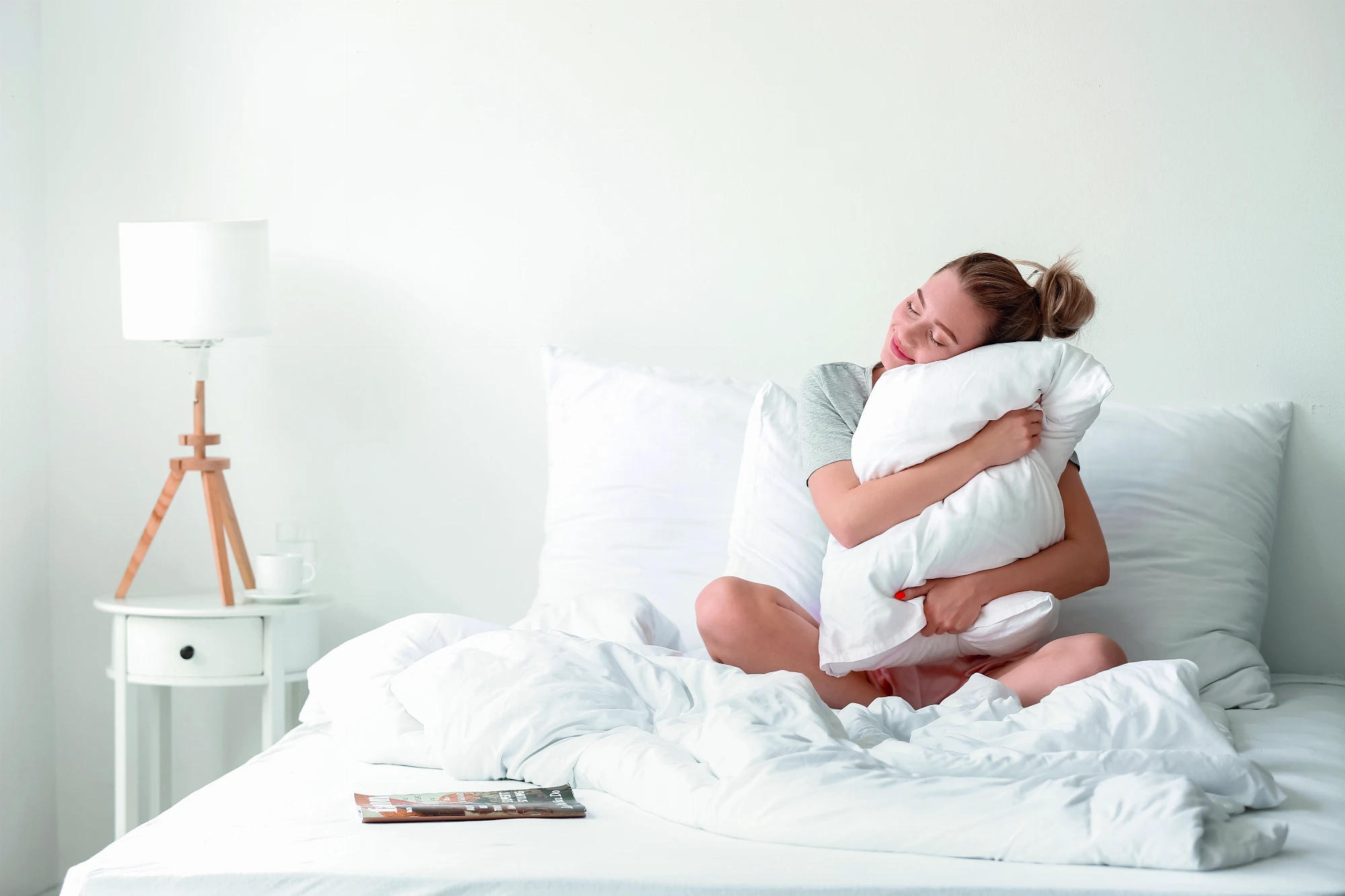
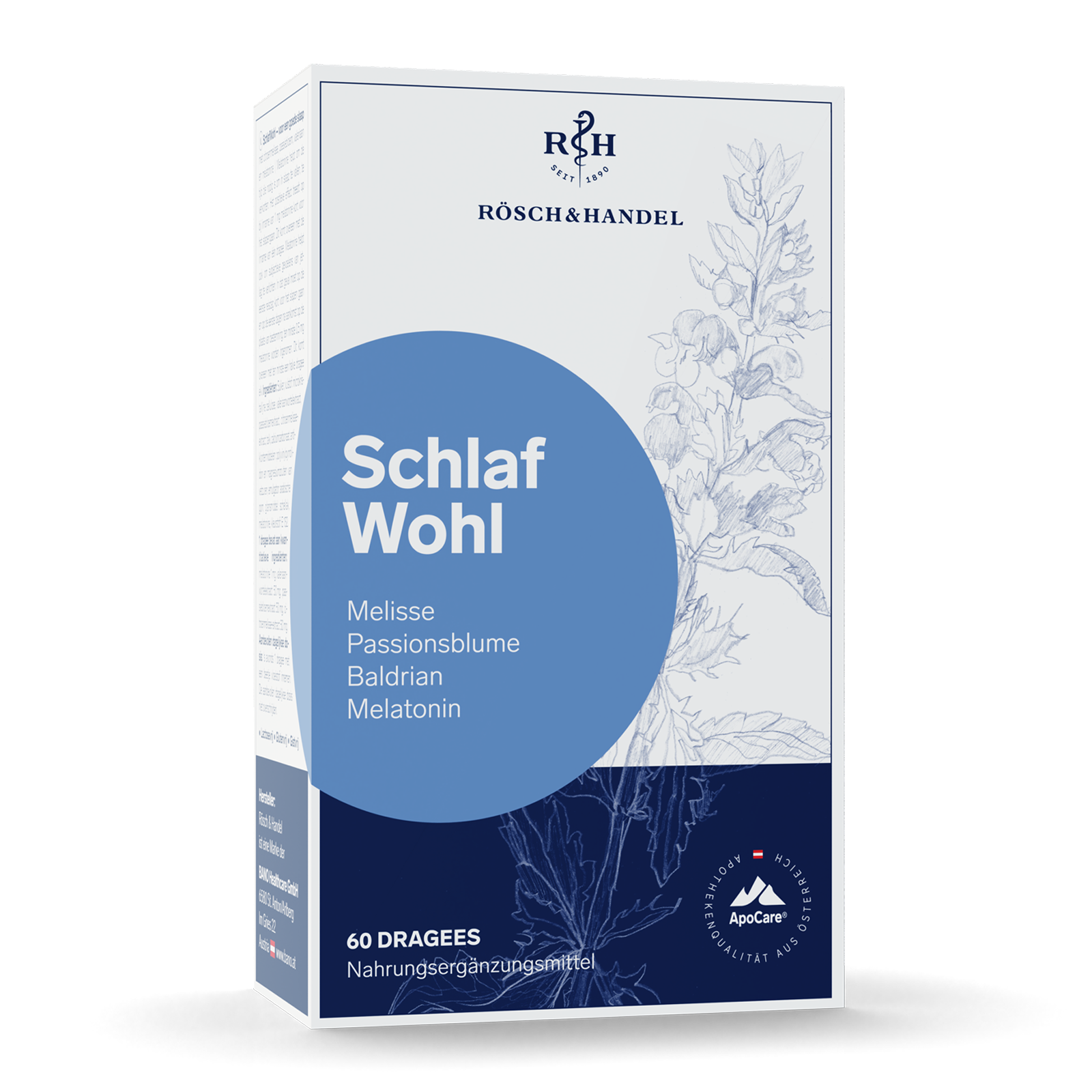

.png)
